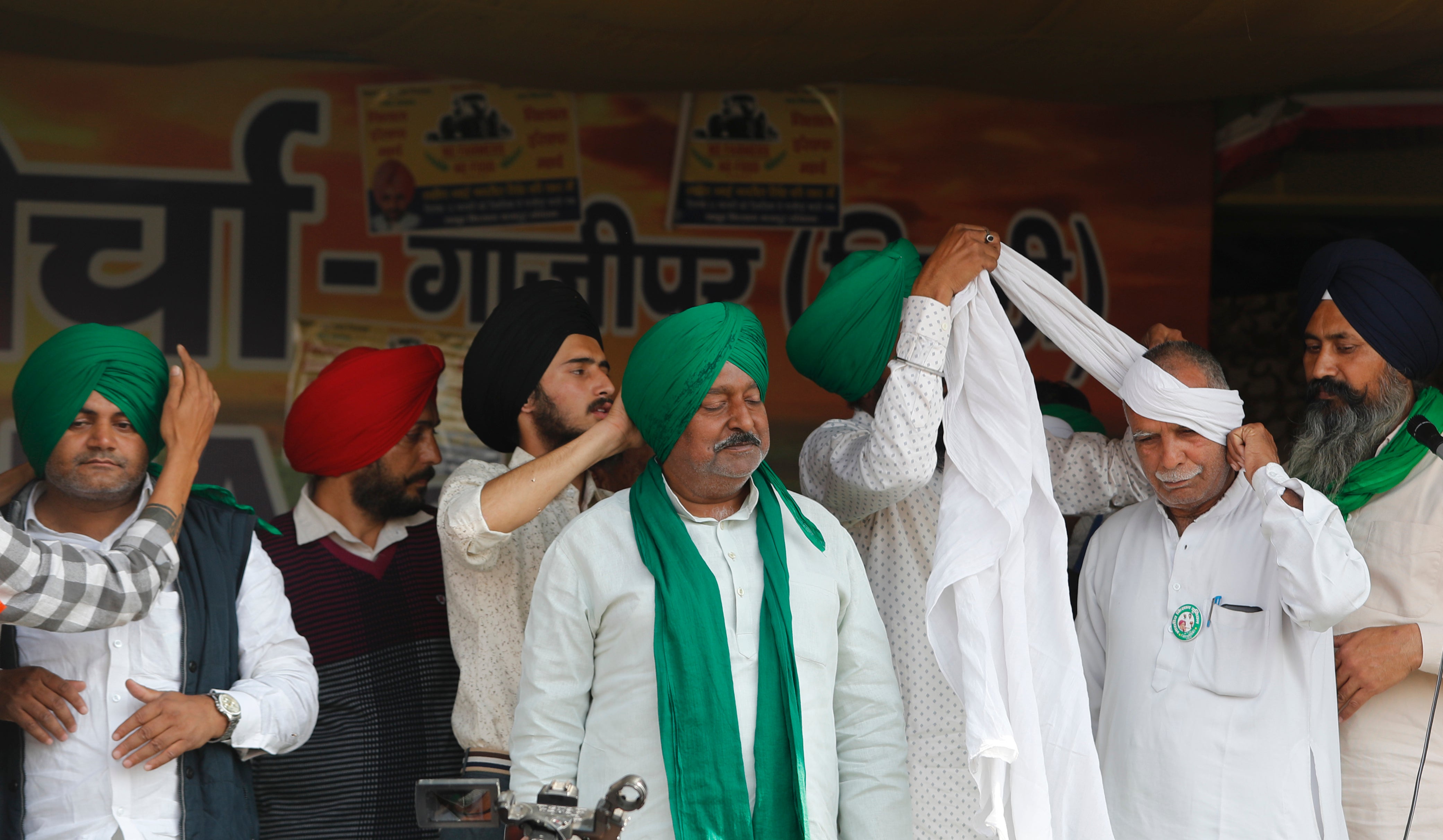Indian climate activist granted bail over farmer protests
An Indian court has granted a 22-year-old climate activist bail, 10 days after she was detained on sedition charges for her alleged role in the creation of an online document intended to help amplify farmer protests

Your support helps us to tell the story
From reproductive rights to climate change to Big Tech, The Independent is on the ground when the story is developing. Whether it's investigating the financials of Elon Musk's pro-Trump PAC or producing our latest documentary, 'The A Word', which shines a light on the American women fighting for reproductive rights, we know how important it is to parse out the facts from the messaging.
At such a critical moment in US history, we need reporters on the ground. Your donation allows us to keep sending journalists to speak to both sides of the story.
The Independent is trusted by Americans across the entire political spectrum. And unlike many other quality news outlets, we choose not to lock Americans out of our reporting and analysis with paywalls. We believe quality journalism should be available to everyone, paid for by those who can afford it.
Your support makes all the difference.An Indian court on Tuesday granted a 22-year-old climate activist bail 10 days after she was detained on sedition charges for her alleged role in the creation of an online document intended to help amplify farmer protests.
Disha Ravi is part of the Indian wing of Fridays for Future, a global climate change movement founded by Swedish teenage climate activist Greta Thunberg. She was arrested on Feb. 13 at her home in the southern city of Bengaluru by New Delhi police.
The police, who had detained Ravi for questioning, said she was a “key conspirator” in the “formulation and dissemination” of a protest document, which the authorities are calling a “toolkit." They said the document spread misinformation about the months-long protests by farmers and “tarnished the image of India."
The document is part of a police investigation into how a group of farmers stormed New Delhi’s historic Red Fort complex on Jan. 26, in one of the few violent incidents in otherwise peaceful ongoing protests on the fringes of the capital.
Tens of thousands of farmers have camped outside New Delhi for three months to protest new agricultural laws that they say will devastate their livelihoods. The protests have posed a major challenge to Prime Minister Narendra Modi’s Hindu nationalist-led government, which says the laws are needed to modernize Indian farming.
In its decision, the court said the evidence produced by police against Ravi was scanty. It said a “call for violence” that police alleged was in the document she shared was "conspicuously absent.”
Police had said the document Ravi shared on social media indicated there was a “conspiracy” behind the violence in which one protester was killed and hundreds of police and demonstrators were injured.
Last week, a judge, while hearing Ravi’s bail plea, called the police accusations “conjecture" after her lawyer argued that the “toolkit” was a mere “resource document” that social activists often use for campaigning, and that it made no mention of violence and did not incite any.
Ravi's case drew widespread condemnation in India and overseas. Protests were held in multiple Indian cities for her release, with critics and opposition parties saying her case highlights a growing crackdown on dissent under Modi’s government.
Ravi’s arrest came days after the government ordered Twitter to block certain accounts and charged journalists with sedition.